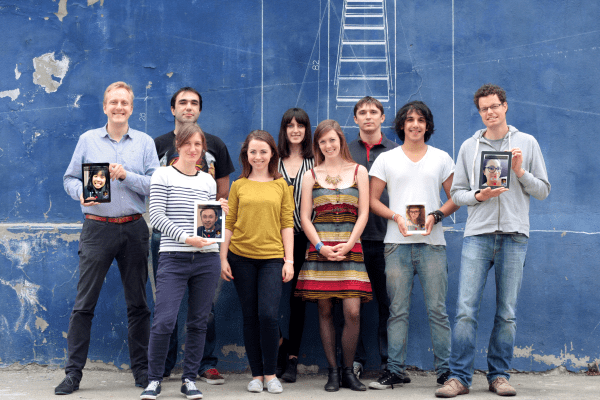Who remembers Chatroulette, the anonymous video chatting site that was an overnight success before being overrun with creeps? Or Airtime, the Chatroulette-inspired startup founded by Napster co-founders Sean Parker and Shawn Fanning that launched with a bang before seemingly disappearing without a trace? Well, either way, it looks like the idea of video chatting with strangers is alive and kicking in the form of mobile app Vive. The Berlin-based startup has closed a $1.5 million funding round from a number of prominent Eurpoean angels.
Keen to stress that this isn’t Chatroulette all over again and that lessons have been learned from Airtime’s model, which relied heavily on Facebook’s social graph, Vive co-founder Arnd Aschentrup likens the iOS app to “couch surfing” but remotely via video.
“The idea is to create a place where it is easy to make new friends from all around the world. A little bit like Couchsurfing, but with video chat, not plane tickets,” he says. “It is also kind of the opposite of Chatroulette. Instead of random connections we carefully curate a community of people that share our values of curiosity, respect and friendliness –- and then use our data to introduce people who have a lot to talk about with each other.”
In other words, while the mission is perhaps the same — to help eliminate “loneliness and boredom,” says Aschentrup — Vive is built on of top of the interest-graph, matching people based on their interests rather than being purely random. It’s also a distinctly mobile-first play. “Nobody wants to chat in front of a computer,” he adds.
Like Airtime before it, however, Vive requires you to log in via Facebook, where it pulls in your Facebook interests and other demographic info. It’s also a member-only community and part of the on-boarding process asks you to describe more of your interests and to say what kind of people you’d like to video chat with through the app, as well as specifying an age-range.
Lastly, in what feels like a nod towards online dating apps, you’re asked to write a passage describing how your best friend would describe you. Then you sit back and wait to be approved — a somewhat manual process that won’t scale as easily as a more free-for-all sign up process but one that presumably aims to stop Vive from becoming a place for men to show their genitalia unsolicited, Chatroulette-style. Afterwards you fill in more of your profile and can begin creating ‘topics’ so that others can find and begin video chatting with you.
So far the app has seen 150,000 signups (that’s signups not monthly active users), with over 40 percent of its members using the app on a daily basis to “practise languages, connect with people around the world, collaborate creatively and to share experiences,” according to the startup. There’s even a Buddhist monk using Vive to offer insight and advice, apparently, which sounds very zen. Meanwhile, the average video chat lasts 15 minutes.
On the topic of monetisation — the app is free to use — Aschentrup says Vive is building a peer-to-peer marketplace for expert help and advice. “Increasingly, things like language learning, tutoring, health and nutrition advice are moving online but we believe the most effective way to address this huge market is to build a working community first and then offer paid expert talks. Everyone else is trying to do this the other way round,” he says.
